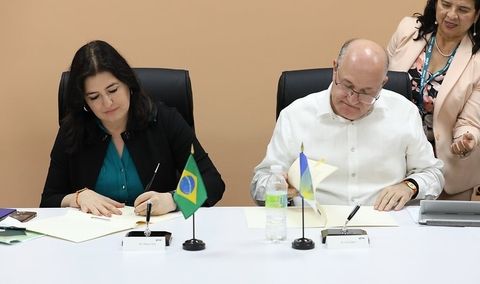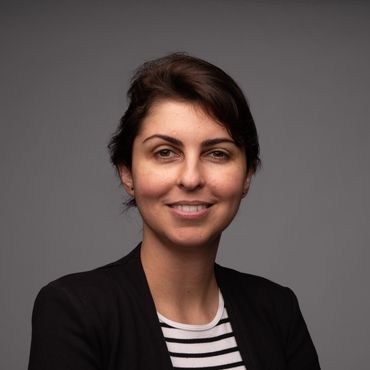The sides will develop projects with high potential to promote gender equality, train women leaders and foster knowledge exchange.
PUNTA CANA, Dominican Republic – The IDB and Brazil will develop new initiatives dedicated to promoting gender equality and the empowerment of women and girls. Inter-American Development Bank (IDB) President Ilan Goldfajn and Minister of Planning and Budget Simone Tebet of Brazil outlined the plans in a memorandum of understanding today during the Annual Meetings of the IDB and IDB Invest Boards of Governors.
Under the agreement, the institutions will map projects in sectors with the greatest potential to reduce gender inequalities. They will also join forces to train leaders in the public sector, including civil servants, mayors, governors and public managers, and promote the exchange of knowledge to systematize criteria for integrating gender in projects that are approved for external financing.
“Today, few states and municipalities with female mayors and governors access international credit. Our objective is to change this reality by the end of 2026. This partnership with the IDB is in line with this project and reinforces initiatives taken throughout the first year of President Lula's government in favor of gender equity, diversity, and inclusion, with emphasis on the sanction of the Equal Pay Law between men and women, the transversal women's agenda, on our Multi-Year Plan and on the redesign of standards for access to external financing, aiming to strengthen the gender component in the requests of subnational and national entities to obtain credit”, said Minister Tebet.
“Gender equality is an institutional priority at the IDB, especially regarding leadership training, in both the public and private sectors. We want to help create conditions for more Brazilians to be in leadership positions and to be agents of economic growth, sustainable solutions and the fight against inequality,” President Goldfajn said.
The institutions will cooperate by sharing technical knowledge and lessons learned in areas such as the development of female leadership in the public sector, as well as promoting human-capital formation for women and access to highly qualified professions. They will also boost gender-sensitive urban policies, and actions aimed at eliminating gender-based violence.
Other fronts of collaboration include developing guides on how to reflect gender considerations in projects and sectors, as well as preparing workshops, conferences, training seminars and knowledge exchanges, and executing other projects and research, such as impact assessments of relevant projects.
The partnership also plans to expand efforts with other entities involved in structuring activities for the gender agenda related to the cooperation signed today. The joint work will contribute to United Nations Sustainable Development Goals five (SDG 5), to achieve gender equality and empower women and girls.
The Boards of Governors are the highest authority responsible for the governance of the IDB and IDB Invest. Most are ministers of finance, ministers of the economy, or central bank presidents of their countries. During the Annual Meetings, economic and financial leaders from the 48 member countries of the IDB are discussing the challenges and opportunities for development in Latin America and the Caribbean.

About the IDB
The Inter-American Development Bank is devoted to improving lives. Established in 1959, the IDB is a leading source of long-term financing for economic, social and institutional development in Latin America and the Caribbean. The IDB also conducts cutting-edge research and provides policy advice, technical assistance and training to public- and private-sector clients throughout the region. Take our virtual tour.
Borges De Padua Goulart Janaina

Gender and Diversity
Empowering women and diverse groups to reach an inclusive development in Latin America and the Caribbean.